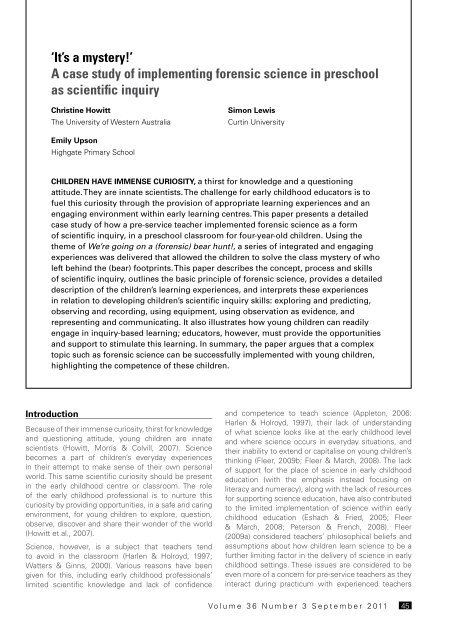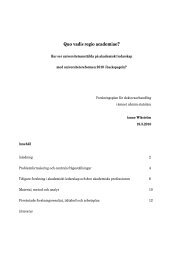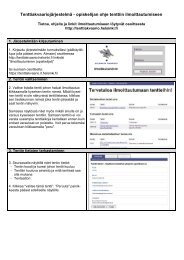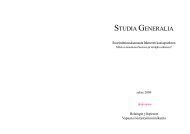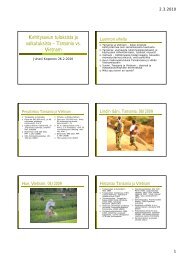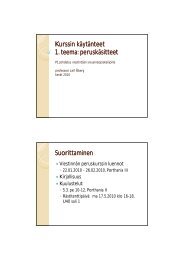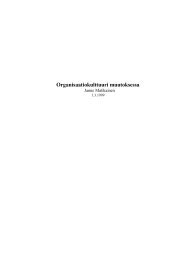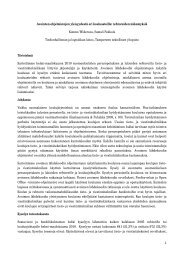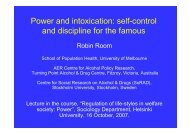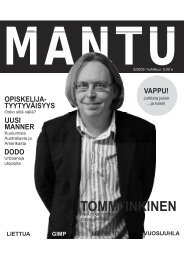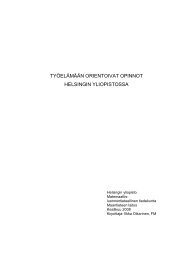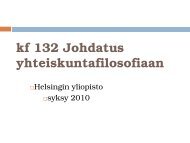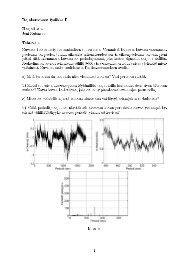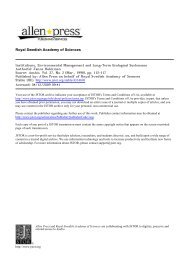Australasian Journal of Early Childhood
Australasian Journal of Early Childhood
Australasian Journal of Early Childhood
- No tags were found...
Create successful ePaper yourself
Turn your PDF publications into a flip-book with our unique Google optimized e-Paper software.
‘It’s a mystery!’A case study <strong>of</strong> implementing forensic science in preschoolas scientific inquiryChristine HowittThe University <strong>of</strong> Western AustraliaSimon LewisCurtin UniversityEmily UpsonHighgate Primary SchoolChildren have immense curiosity, a thirst for knowledge and a questioningattitude. They are innate scientists. The challenge for early childhood educators is t<strong>of</strong>uel this curiosity through the provision <strong>of</strong> appropriate learning experiences and anengaging environment within early learning centres. This paper presents a detailedcase study <strong>of</strong> how a pre-service teacher implemented forensic science as a form<strong>of</strong> scientific inquiry, in a preschool classroom for four-year-old children. Using thetheme <strong>of</strong> We’re going on a (forensic) bear hunt!, a series <strong>of</strong> integrated and engagingexperiences was delivered that allowed the children to solve the class mystery <strong>of</strong> wholeft behind the (bear) footprints. This paper describes the concept, process and skills<strong>of</strong> scientific inquiry, outlines the basic principle <strong>of</strong> forensic science, provides a detaileddescription <strong>of</strong> the children’s learning experiences, and interprets these experiencesin relation to developing children’s scientific inquiry skills: exploring and predicting,observing and recording, using equipment, using observation as evidence, andrepresenting and communicating. It also illustrates how young children can readilyengage in inquiry-based learning; educators, however, must provide the opportunitiesand support to stimulate this learning. In summary, the paper argues that a complextopic such as forensic science can be successfully implemented with young children,highlighting the competence <strong>of</strong> these children.IntroductionBecause <strong>of</strong> their immense curiosity, thirst for knowledgeand questioning attitude, young children are innatescientists (Howitt, Morris & Colvill, 2007). Sciencebecomes a part <strong>of</strong> children’s everyday experiencesin their attempt to make sense <strong>of</strong> their own personalworld. This same scientific curiosity should be presentin the early childhood centre or classroom. The role<strong>of</strong> the early childhood pr<strong>of</strong>essional is to nurture thiscuriosity by providing opportunities, in a safe and caringenvironment, for young children to explore, question,observe, discover and share their wonder <strong>of</strong> the world(Howitt et al., 2007).Science, however, is a subject that teachers tendto avoid in the classroom (Harlen & Holroyd, 1997;Watters & Ginns, 2000). Various reasons have beengiven for this, including early childhood pr<strong>of</strong>essionals’limited scientific knowledge and lack <strong>of</strong> confidenceand competence to teach science (Appleton, 2006:Harlen & Holroyd, 1997), their lack <strong>of</strong> understanding<strong>of</strong> what science looks like at the early childhood leveland where science occurs in everyday situations, andtheir inability to extend or capitalise on young children’sthinking (Fleer, 2009b; Fleer & March, 2008). The lack<strong>of</strong> support for the place <strong>of</strong> science in early childhoodeducation (with the emphasis instead focusing onliteracy and numeracy), along with the lack <strong>of</strong> resourcesfor supporting science education, have also contributedto the limited implementation <strong>of</strong> science within earlychildhood education (Eshach & Fried, 2005; Fleer& March, 2008; Peterson & French, 2008). Fleer(2009a) considered teachers’ philosophical beliefs andassumptions about how children learn science to be afurther limiting factor in the delivery <strong>of</strong> science in earlychildhood settings. These issues are considered to beeven more <strong>of</strong> a concern for pre-service teachers as theyinteract during practicum with experienced teachersVo l u m e 3 6 N u m b e r 3 S e p t e m b e r 2 011 45


